
On December 10, the Shanghai Film Critics Society ushered in the awarding of the 30th Society Award. At the Shihudang Chunshen Hall in Songjiang District, Shanghai, the "Top Ten Chinese Films of the Year" awards were announced along with a series of individual awards.
The Shanghai Critics Circle Award (Shanghai Film Critics Award) was founded in 1986 and is a professional award with national influence. For more than 30 years, the Shanghai Film Critics Society and the Shanghai Film Critics Awards have adhered to and respected positive value orientations, diverse artistic tastes, and elegant academic tastes, and have done their part for the development of Chinese films.
Due to the epidemic and other reasons, the awards were suspended last year. This year's top ten include outstanding domestic cinema movies in the past two years. In the end, "The Myth of Love", "30,000 Miles from Chang'an", and "Apotheosis of the Gods Part 1": Chaoge Fengyun", "The Wandering Earth 2", "Mom! ", "The Long Confession", "Miracle: Stupid Kid", "Life Events", "The Young Lion" and "1921" won the "Top Ten Chinese Films of the Year".
The "New Actor of the Year Award" was won by Hui Wangjun ("Rattle Ring"); the "New Actress Award of the Year" was won by Wang Yang ("The Orioles in the Willows"); Qiao Sixue won the "New Screenwriter of the Year" for "Umbilical Cord" Award", Sun Haipeng of "Lion Boy" won the "Newcomer Director Award of the Year"; "Chang'an 30,000 Miles" won the "Newcomer New Work Award of the Year". Two film scholars, Ding Yaping and Li Yizhong, won this year's "Annual Film Theory Criticism Contribution Award".
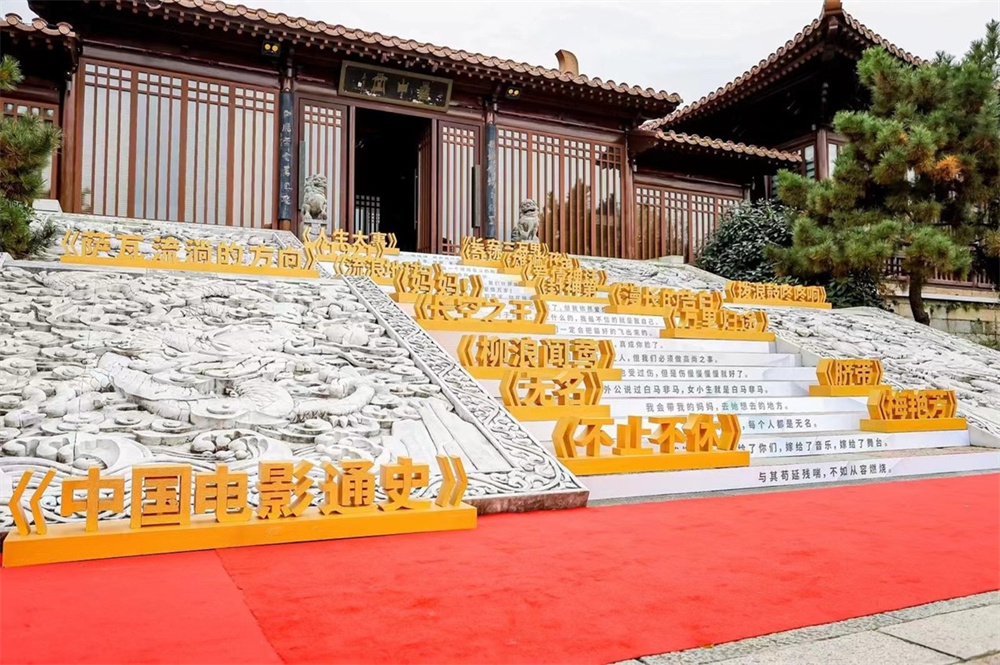
The real, free and light emotional life of the urban middle class in "The Myth of Love" adds a new texture to domestic romance films; "Thirty Thousand Miles from Chang'an" uses 3D animation to show the prosperity and excitement of the Tang Dynasty and the heroic life of the poet Li Bai; The ambition and creative practice of "Fengshen" to create an oriental magical epic leave people with endless space for imagination; the technology and narrative skills of "The Wandering Earth 2" push Chinese science fiction to a new level are mind-blowing and exciting; "Lion" "Boy" allows theater animation to enter a realistic narrative beyond the established impressions of mythology and family fun; "Mom! "In addition to caring for the Alzheimer's group, it deeply connects the lives and emotions of two generations of middle-aged and elderly women with the historical era... As the awards were awarded, the audience reviewed one by one the vigorous power and continued development of Chinese films in the past two years. In the prosperous market, different types of films continue to explore and develop in their respective fields.
At the same time, from the recognition of individual awards, we can also find the support and discovery of new talents and new works by the Film Critics Society. Hui Wangjun, who won the New Actor of the Year, introduced himself to the audience: "I am a taxi driver and an actor." This newcomer, who played a low-level character in the movie with his true colors, reflected on himself in an interview When I was first found by the director, I was still running a taxi. I spent many years away from home with my wife, so I felt very involved in the story of the movie. After meeting the director, Hui Wangjun was worried that he was not qualified for the role, but the director made him believe in real power. "He asked me to keep a beard, stop cutting my hair, and don't deliberately lose weight." When he came to Shanghai to receive the award, Hui Wang Jun was very excited, "The producer told me that a trip to Shanghai would bring good things. I would like to thank the director for giving me this opportunity to open the door to my dream."
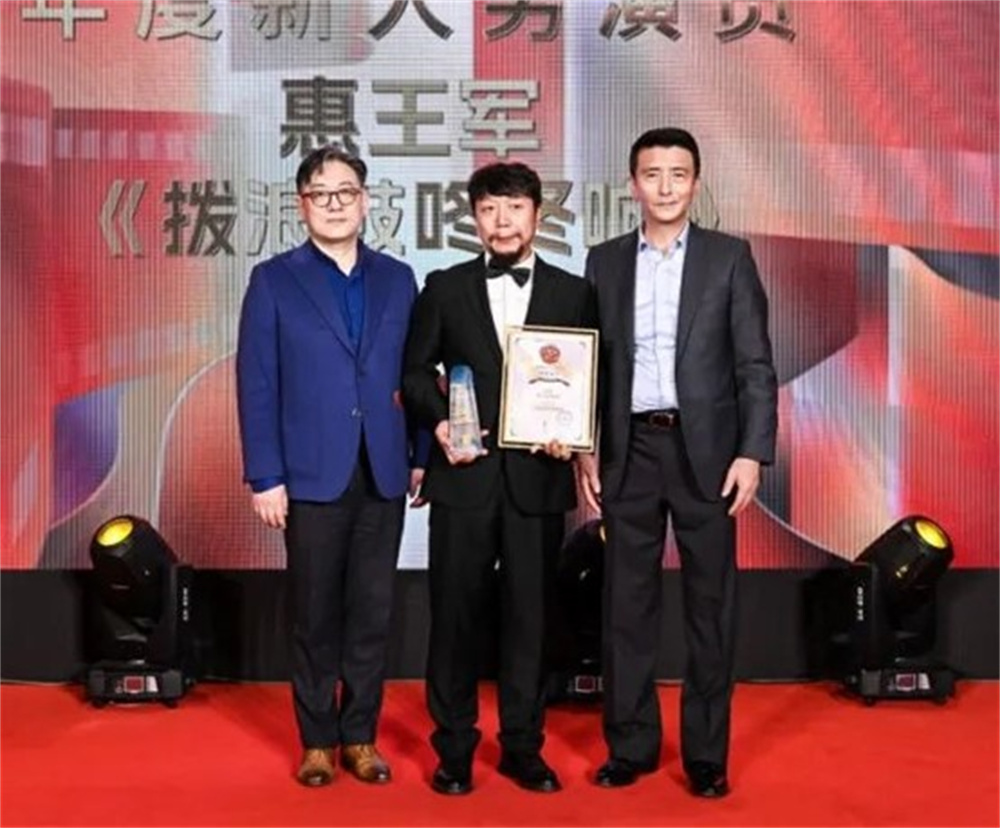
New Actor of the Year Hui Wangjun
Best New Actress winner Wang Yang was so emotional that she choked up after receiving the trophy. As a "newcomer", she has graduated for more than ten years. After graduating from the Chinese Opera Musical Theater Class in 2009, her acting career was not smooth. The female student Chui Tiao in "The Orioles in the Willows" incorporates many of her own experiences and emotions. At the same time, she also told the audience and film critics that her passion for movies was rekindled after filming "The Orioles in the Willows", and she went to France to continue studying film this year with the encouragement of the film's producer Zheng Dasheng. "An actor is constantly looking for a new self. I would like to thank the Shanghai Film Critics Society for giving me this honor. It is also the motivation for me to continue to fight for my dreams."
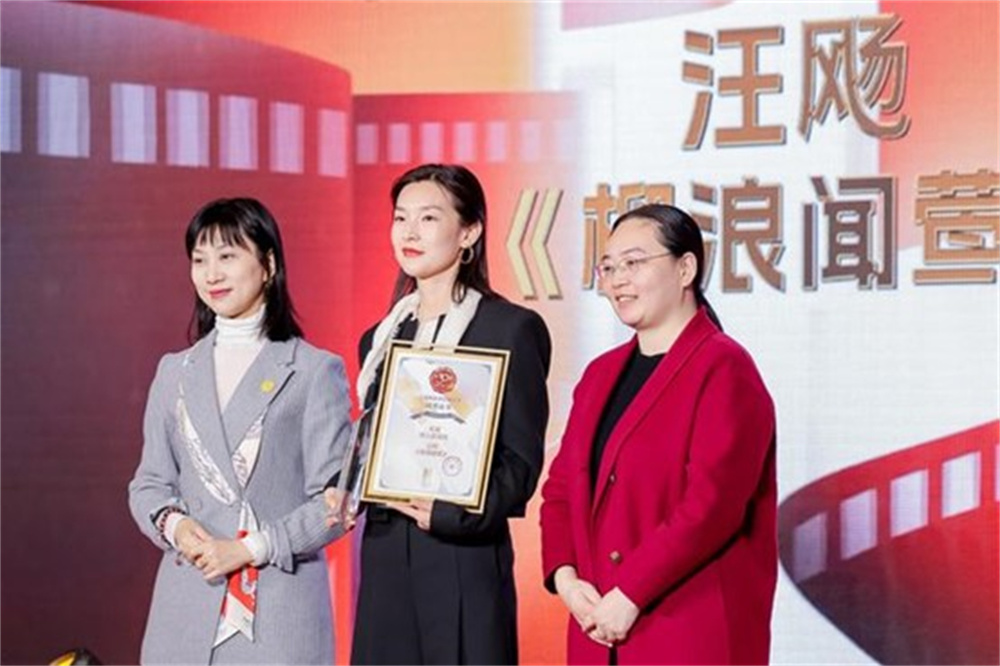
Best New Actress Winner Wang Yang
This year's two major awards, "Newcomer Director Award of the Year" and "Newcomer New Work Award of the Year", were won by animated films. Song Yiyi, the post-90s producer of "Chang'an 30,000 Miles" who served as a producer for the first time, announced in a statement In her acceptance speech, she said, “Thank you everyone for agreeing that animation can stand on the same stage as other works of the same era.” At the same time, she also introduced that Light Chaser Animation will insist on producing one high-quality production every year. Next summer’s “White Snake: The Floating Life” I will meet you as scheduled. "
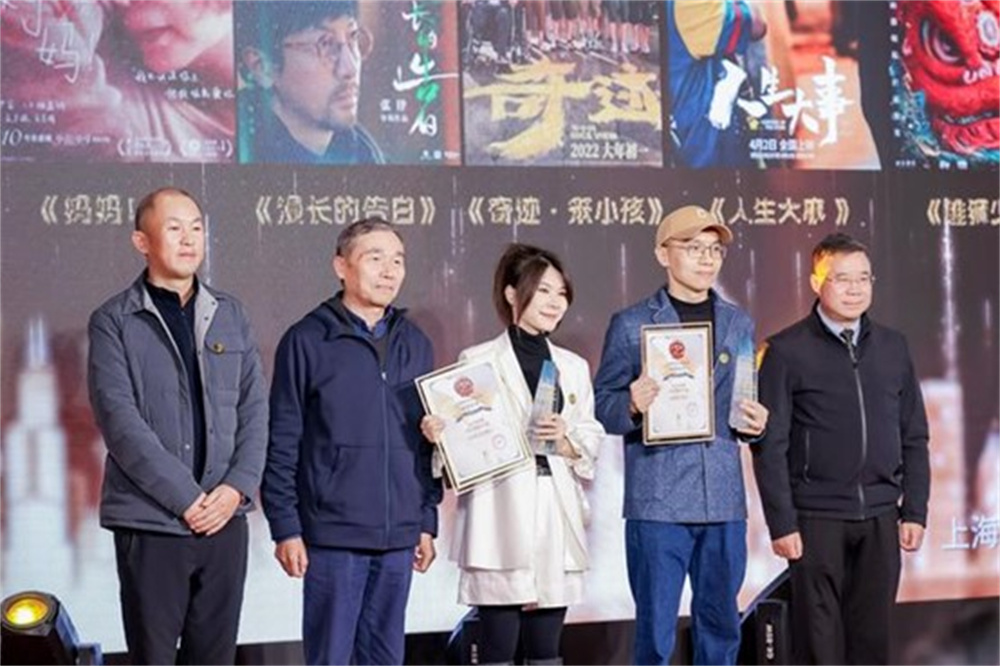
The two major awards of "Newcomer Director of the Year" and "Newcomer of the Year" were both won by animated films.
As a professional film critic award, the Shanghai Film Critics Society has specially established the "Film Theory and Criticism Contribution Award" since 2016 to commend scholars who work in film theory construction and film criticism each year. This award has also become feature. This year, Ding Yaping, president of the China Colleges and Universities Film and Television Society and director of the Arts Department of Communication University of China, and Li Yizhong, professor of Shanghai Jiao Tong University, jointly received the award.
As one of the most active scholars in the Chinese film academic community, Ding Yaping has long been committed to Chinese film education and the academic development of Chinese films. His academic monographs such as "Chinese Film History" have contributed to Chinese film scholarship with his unique humanistic care and thinking. He left a legacy of image speech and cultural speculation, and promoted Chinese film scholarship to the world. The multi-volume "Aspects of Early Chinese Film" edited by Li Yizhong this year is unique. Through an ingenious exploration of the external history of film and a unique structural design, it sorts out the historical context of Chinese film. It is systematic, thick, emotional and warm, and provides a comprehensive guide to the history of Chinese film. In-depth research opens up new paths.
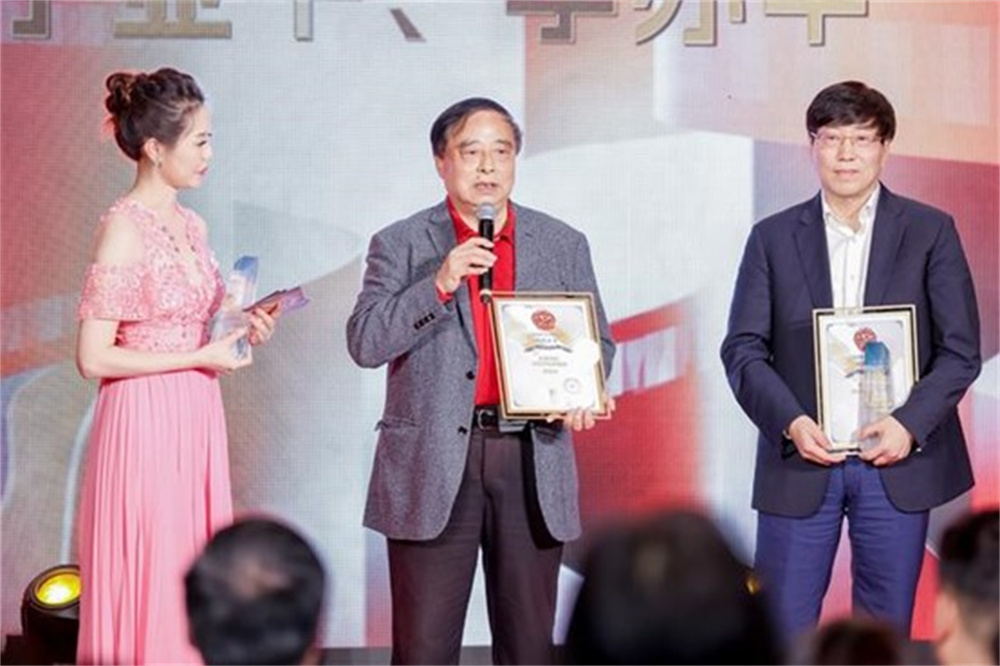
"Award for Contribution to Film Theory and Criticism"
Professor Li Yizhong said in an interview that engaging in theory, criticism, and even historical research is "behind the scenes" for movies. "For a country's film industry to prosper, in addition to creating works, it also needs a huge intellectual capacity. The system is supporting us and we are willing to continue to work hard in this area.”
Ding Yaping said that he was "surprised, happy and a little uneasy" when he received this honor. He said that the achievements in contemporary film research "are due to the support of the common field, due to the historical connection and interactive practice of the film star. Thank you for the film." Many possibilities for people.” At the same time, he also evaluated this award from the perspective of a critic - "Although it is niche, it has influence across the country and has its perspective and persistence. I particularly appreciate its persistence and perspective."
